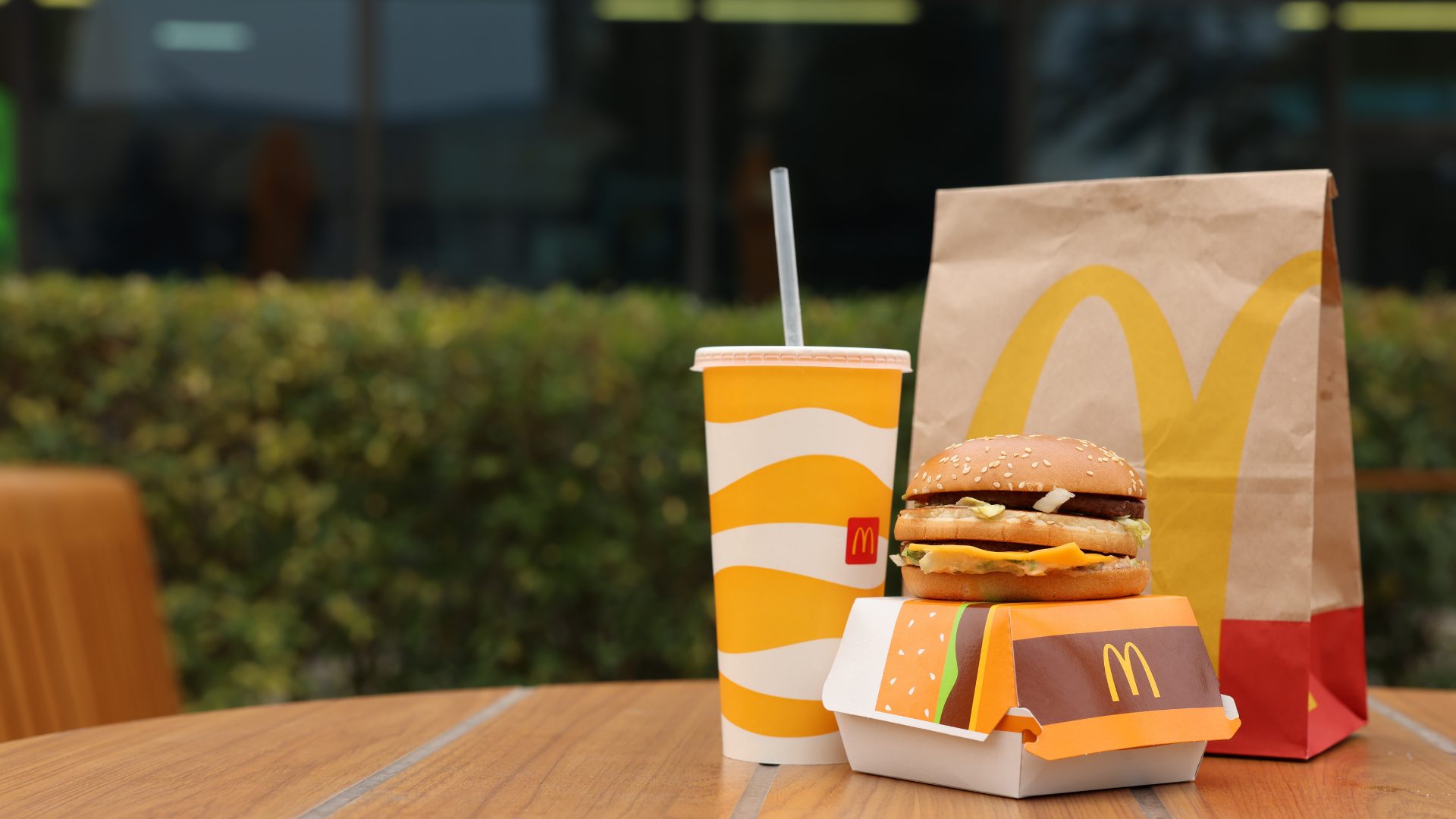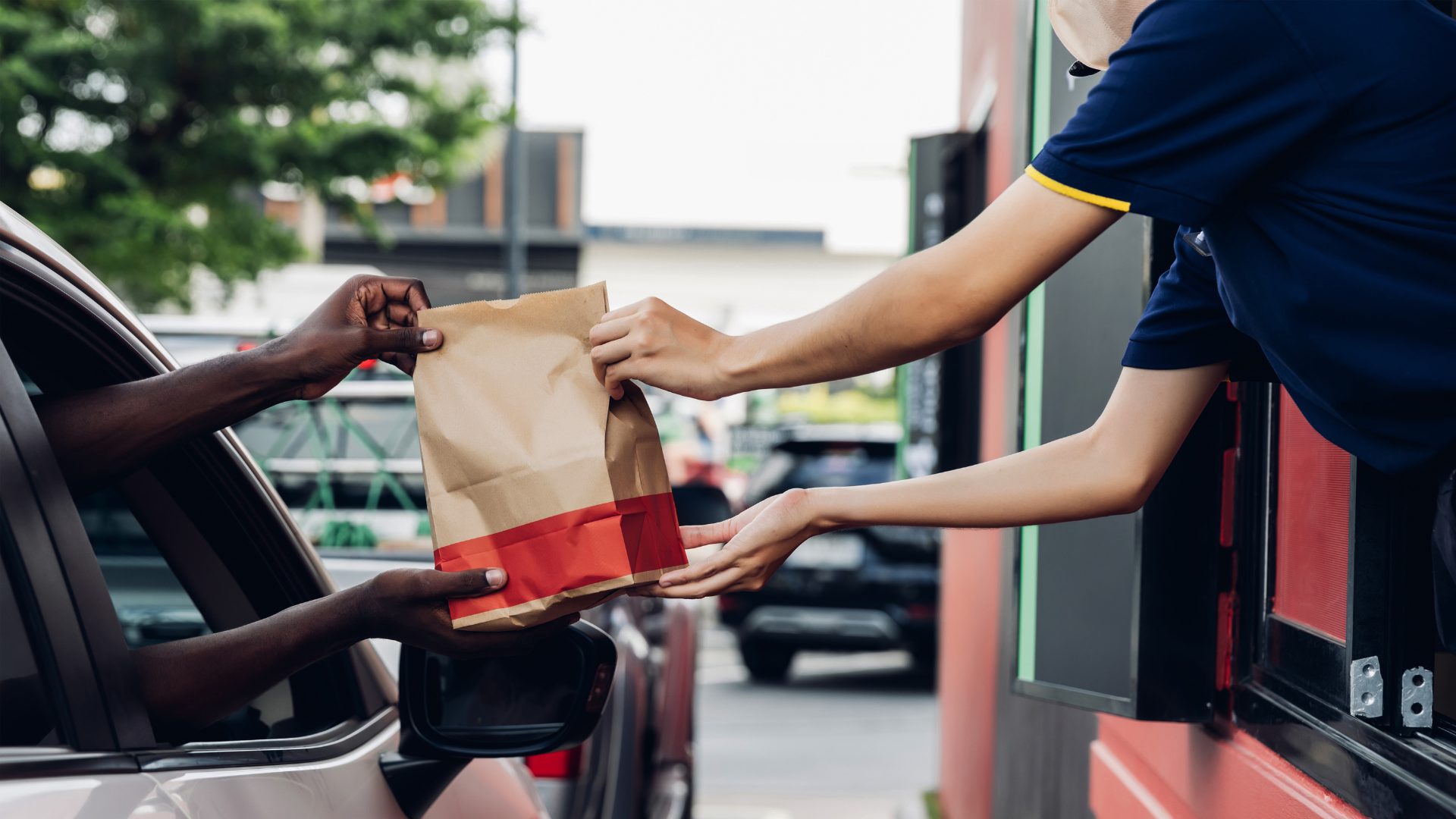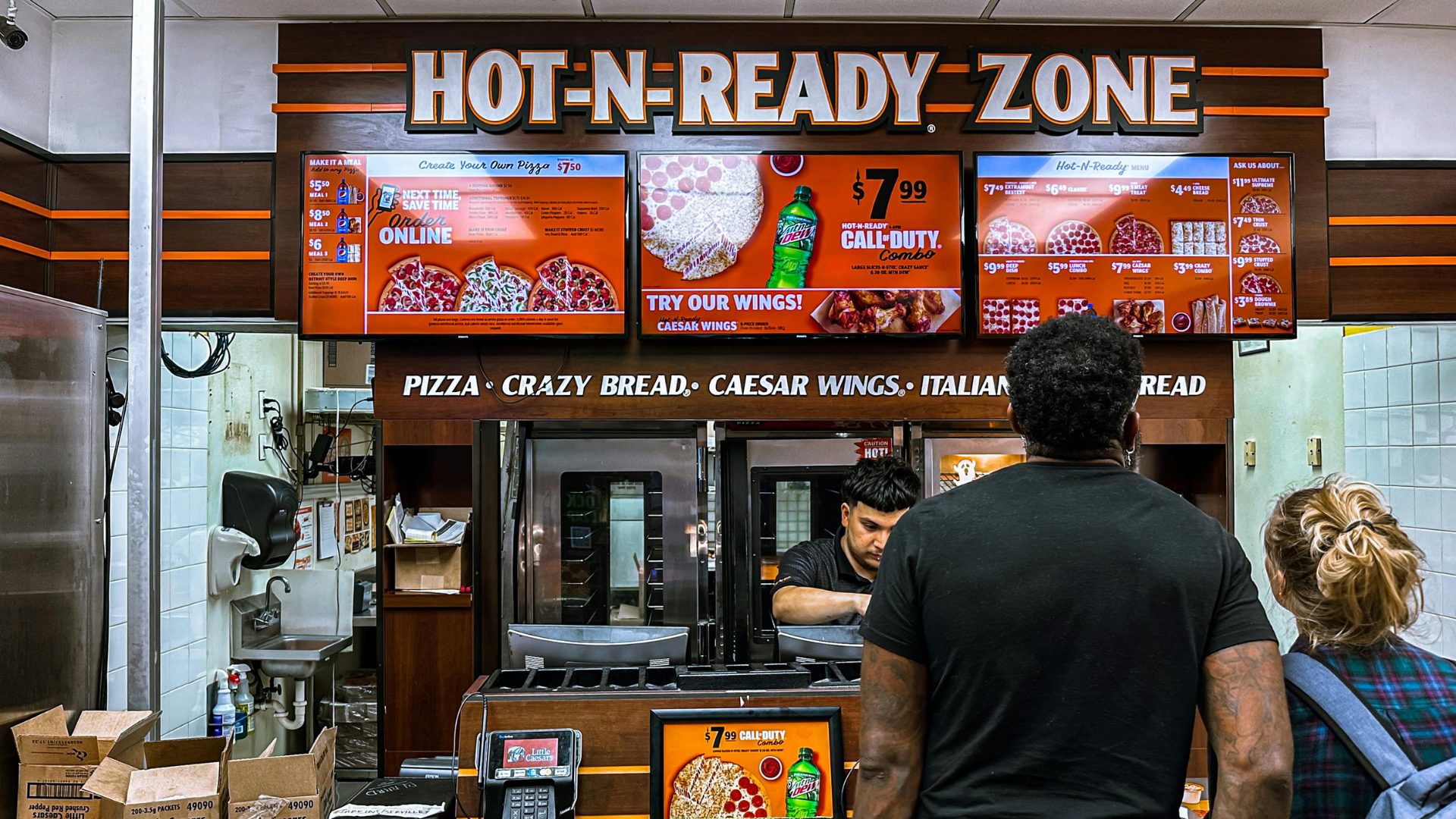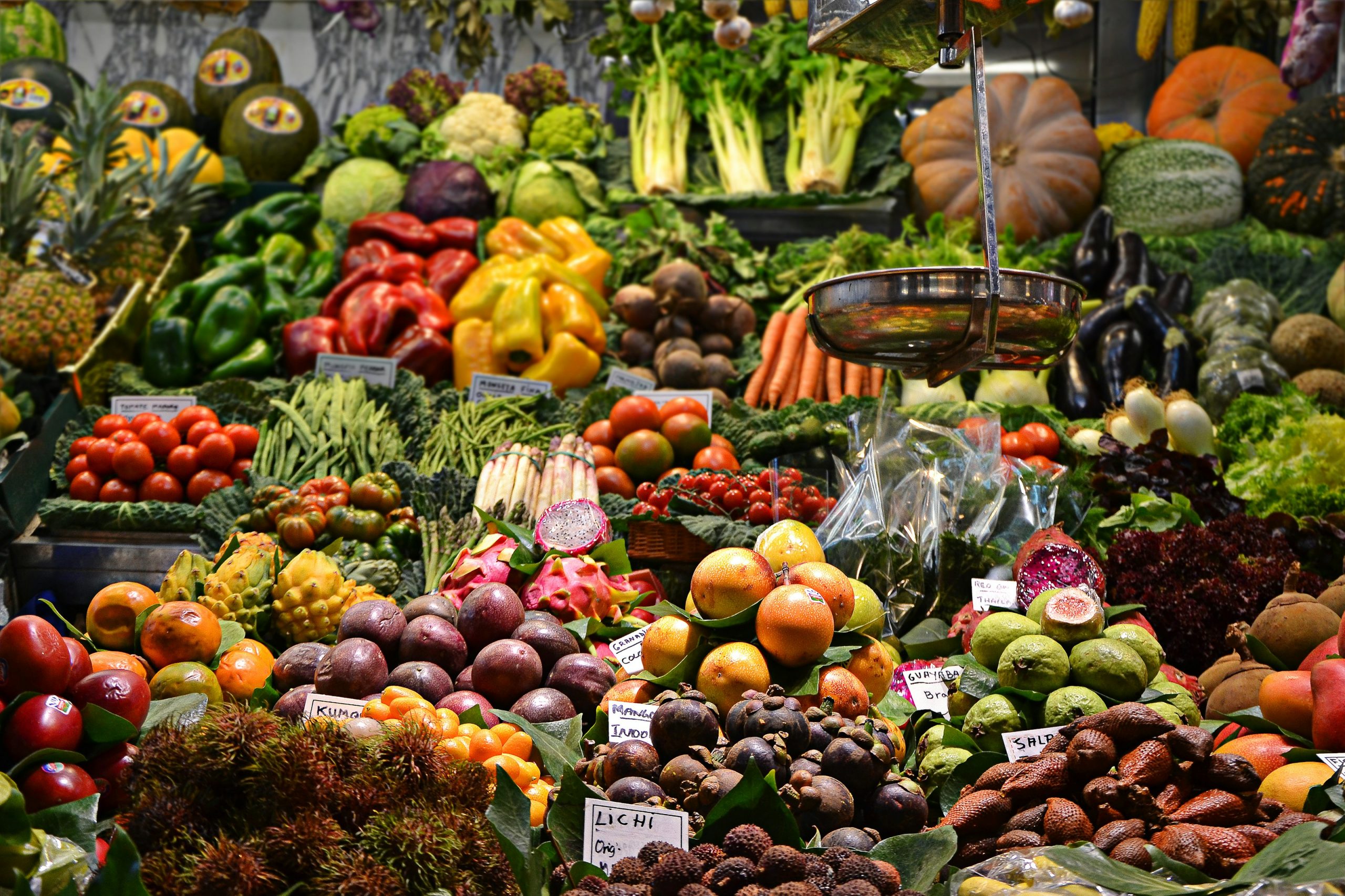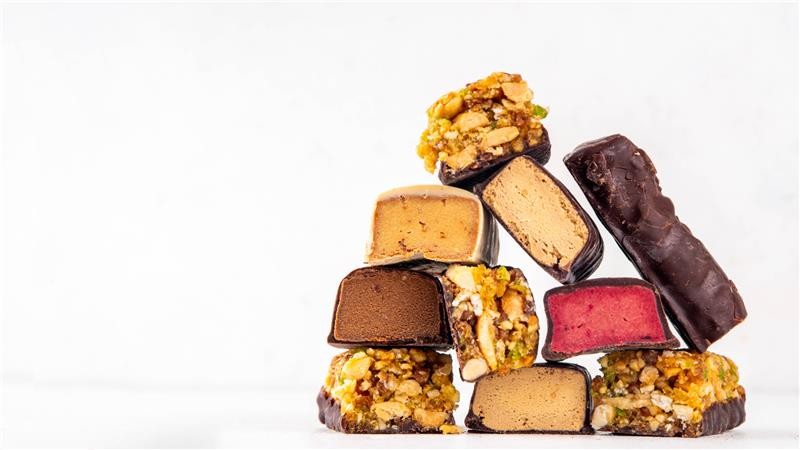On the McDonald’s app over the past few weeks, you were greeted with a banner announcing the re-launch of the MONOPOLY game. After scrolling down a bit, another banner announced that “Extra Value Meals Are Back.” In the menu section, Snack Wraps – returning after a nine-year hiatus – are featured prominently.
The immediate sense created by the app is of a company trying to return to its past. The question is whether that return is good news or bad news for the company’s future.
its face, the look back seems to suggest that McDonald’s is rehashing old ideas, and old products, because it hasn’t done a good enough job creating new ones. The closure this summer of CosMcs, a beverage-focused chain launched in 2023, adds to the perception that the company’s new ideas simply aren’t good enough.
Is Nostalgia McDonald’s Long-term Strategy?
Certainly, it’s difficult to point to much in the way of innovation in recent years. The chain’s last major play in the U.S. was likely All-Day Breakfast, launched a decade ago and shuttered just before the novel coronavirus pandemic. (Whether the pandemic itself drove the decision even now appears to be the source of some debate; some insiders have said publicly that it was operational complexity, not COVID, that led McDonald’s to reverse course.)
But the environment during and after the pandemic made changes more difficult, given operators were scrambling simply to procure suppliers and labor to satisfy the demand that existed (same-restaurant sales in the U.S. rose about 30% in three years).
And the decision now to lean into nostalgia seems driven less by a fear that the company has fallen behind than by the realization among McDonald’s top executives that, in some sense, the company lost its way. The post-pandemic environment did allow McDonald’s to rest too much on its laurels – not in terms of failing to innovate, but in taking too much price. Last summer, CEO Chris Kempczinski admitted to analysts that “our value leadership gap has recently shrunk”. Amid a difficult consumer environment, traffic and same-restaurants sales in the U.S. stalled out as a result.
But since then, McDonald’s has made a clear effort to restore its value leadership. These initiatives appear a part of that forward-looking process, rather than an attempt to capture a short-term boost.
Addressing Low App Usage
To be sure, the popularity of MONOPOLY should help sales this quarter. But the long-term strategy is highlighted by the fact that the McDonald’s app is a key part of the game: customers must register and capture peel-off pieces online to win prizes.
On the second quarter earnings call in August, Kempczinski noted the value of app registration for the company: according to internal data, visit frequency after registration soars from about 10.5 times per year to 26 times.
The app not only drives higher visitation, but given its usually wide range of offers, also improves customer perception of the company’s value. That, too, is a key part of the strategy here; as we noted this summer, customer perception of value at the chain clearly has dipped significantly. McDonald’s USA had to send an open letter defending its pricing, while Chili’s has driven its turnaround in large part by selling its own version of the Big Mac at only a modest premium to McDonald’s pricing.
But because app usage is surprisingly low – the CEO said after Q2 that only about one-quarter of consumers use the app – the benefits of those offers to both store traffic and consumer perception remain relatively small. The return of MONOPOLY seems more an effort to drive app usage up for the long term rather than simply drive a bit of optimism that will fade after a few weeks.
McDonald’s Repackages Value
The Snack Wraps re-launch similarly is part of this strategy. Kempczinski noted on the second quarter earnings call that franchisees had agreed to extend the national advertisement of the $2.99 price point through the end of the year. That’s a big win for corporate, given the variability in costs (specifically around labor) in multiple markets, and some apparent franchisee discontent around the combination of higher costs and increased promotions.
Particularly in recent years, McDonald’s hasn’t necessarily been able to communicate a clear value proposition for any product to consumers on a national level, and so this agreement too should allow McDonald’s to reverse sentiment that the chain has become too expensive.
Extra Value Meals of course do the same for customers in-store (and on the app).
It’s not like McDonald’s innovation has totally faded: CosMc’s was meant as a trial that existed outside of the current store base (where it would not upset operations). Its learnings may be useful: McDonald’s is launching a 500-store trial of new cold coffees and ‘refreshers’ previously sold at the concept, leaning into the products that are driving growth in the coffee space for chains like Dutch Bros.
Inflation Pressures Fast-Food Customers
The problem for McDonald’s is not that it’s trying to repeat what it used to do, but rather that amid inflation and easy demand growth, it stopped being what it was: at least in consumer minds, the clear leader in terms of value among QSRs.
In an environment where its core lower-income consumer is pressured – management has said visits from that cohort are down double-digits in the first half of the year – McDonald’s needs to regain its price leadership in order to keep U.S. traffic sustainable.
Franchisee concerns make core menu pricing negotiations difficult (though corporate is working on that front, as well), but Kempczinski and his executives have looked to find wins where they can. As it turns out, the easiest place to find the wins to drive future growth may have been to bring back some of the initiatives that drove growth in the past.
Vince Martin is an analyst and author whose work has appeared on multiple financial industry websites for more than a decade; he’s currently the lead writer for Wall Street & Main. He has no positions in any securities mentioned.
Food for Thought Leadership
Is the future of flavor increasingly borderless? Valda Coryat, vice president of marketing for condiments and sauces at McCormick, reveals how curiosity powers McCormick’s flavor foresight, why segmentation by “flavor personality” matters, and how flavors are becoming more culturally driven.


